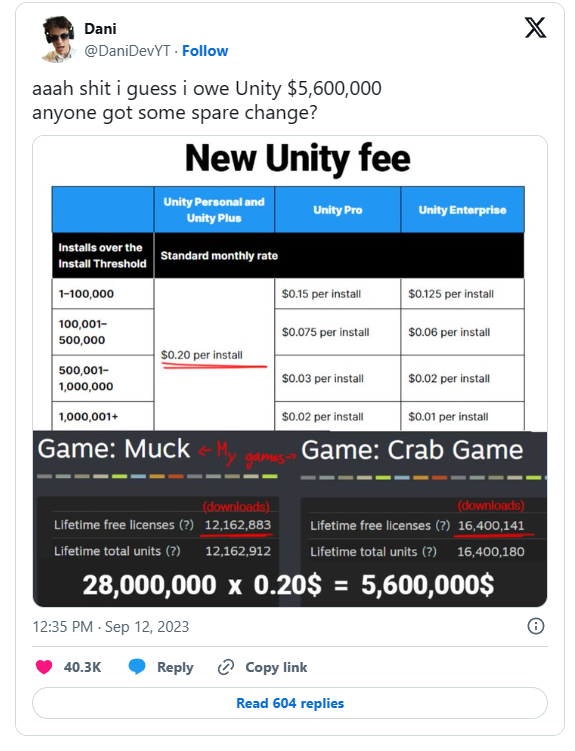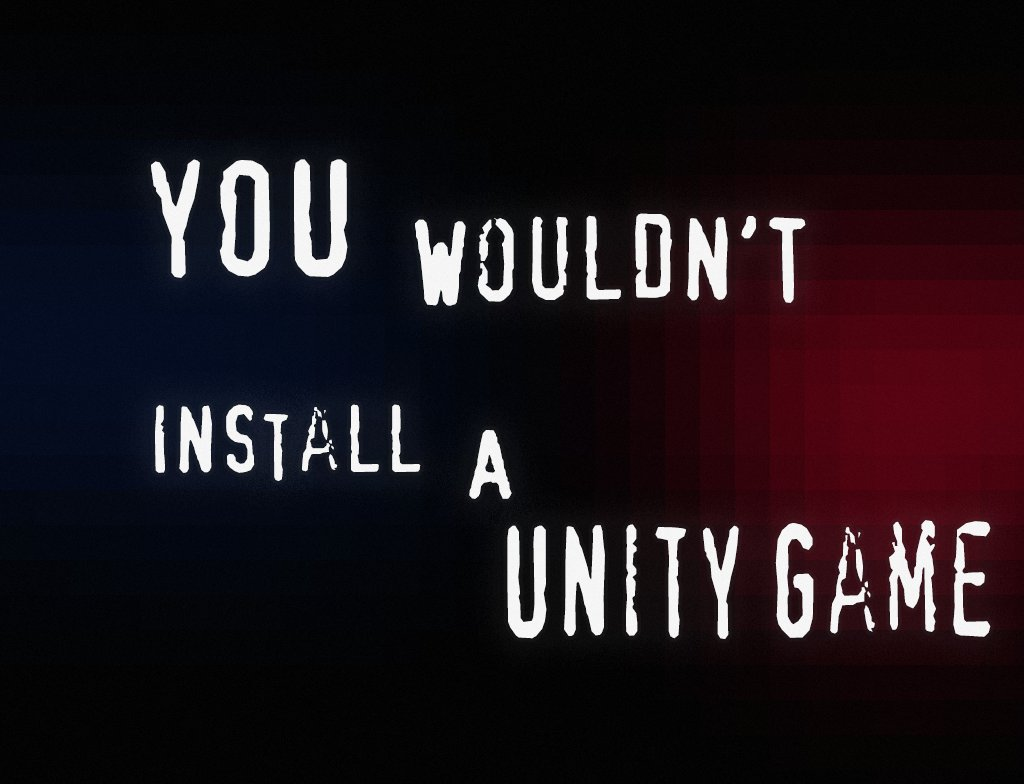https://forum.unity.com/threads/unity-plan-pricing-and-packaging-updates.1482750/
"Effective January 1, 2024, we will introduce a new Unity Runtime Fee that’s based on game installs. We will also add cloud-based asset storage, Unity DevOps tools, and AI at runtime at no extra cost to Unity subscription plans this November."
People seem to be really upset.

"Effective January 1, 2024, we will introduce a new Unity Runtime Fee that’s based on game installs. We will also add cloud-based asset storage, Unity DevOps tools, and AI at runtime at no extra cost to Unity subscription plans this November."
People seem to be really upset.

![[H]ard|Forum](/styles/hardforum/xenforo/logo_dark.png)
